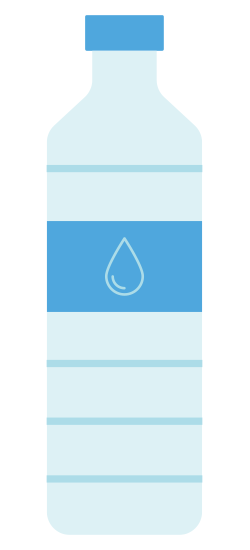Medications and Dehydration
2023-05-10
-

If you are throwing up, having diarrhea, drinking less water, and/or having a fever, you can become dehydrated. Being dehydrated means your body doesn't have enough fluids. When you're dehydrated, some medications used to treat certain health problems (such as diabetes, high blood pressure, or pain) may cause unwanted side effects, such as harm to your kidneys. It is important to have a plan to prevent these side effects in case you should become sick and dehydrated.
SafeMedicationUse.ca learned about a person who was taking a diabetes medication called empagliflozin and kept taking the same dose after becoming sick. This medication is helpful for people with diabetes, but it can cause serious side effects if it's taken when the person is dehydrated. In this case, the person died in hospital.
SafeMedicationUse.ca has the following tips to reduce the risk of side effects from your medications when you are sick and dehydrated:
-
Find out from your doctor, nurse practitioner, diabetes specialist, or pharmacist if you are taking any medications that need to be stopped for a short time when you are dehydrated. Helpful information can be found in these resources:
-
Ask your health care provider to help you make a plan for when you are sick and dehydrated. This plan should include which medications should be paused and when to restart them.
-
Share your sick day plan with your family members, your caregivers, and other members of your health care team. Have a copy of the plan readily available in case of sickness.
-
Learn about the signs and symptoms of dehydration (such as thirst, headaches, or dizziness) and how to stay hydrated: Health Promotion - Facts on fluids: How to stay hydrated
This newsletter was developed in collaboration with Best Medicines Coalition and Patients for Patient Safety Canada.
Recommendations are shared with healthcare providers, through the ISMP Canada Safety Bulletin, so that changes can be made together.
|

